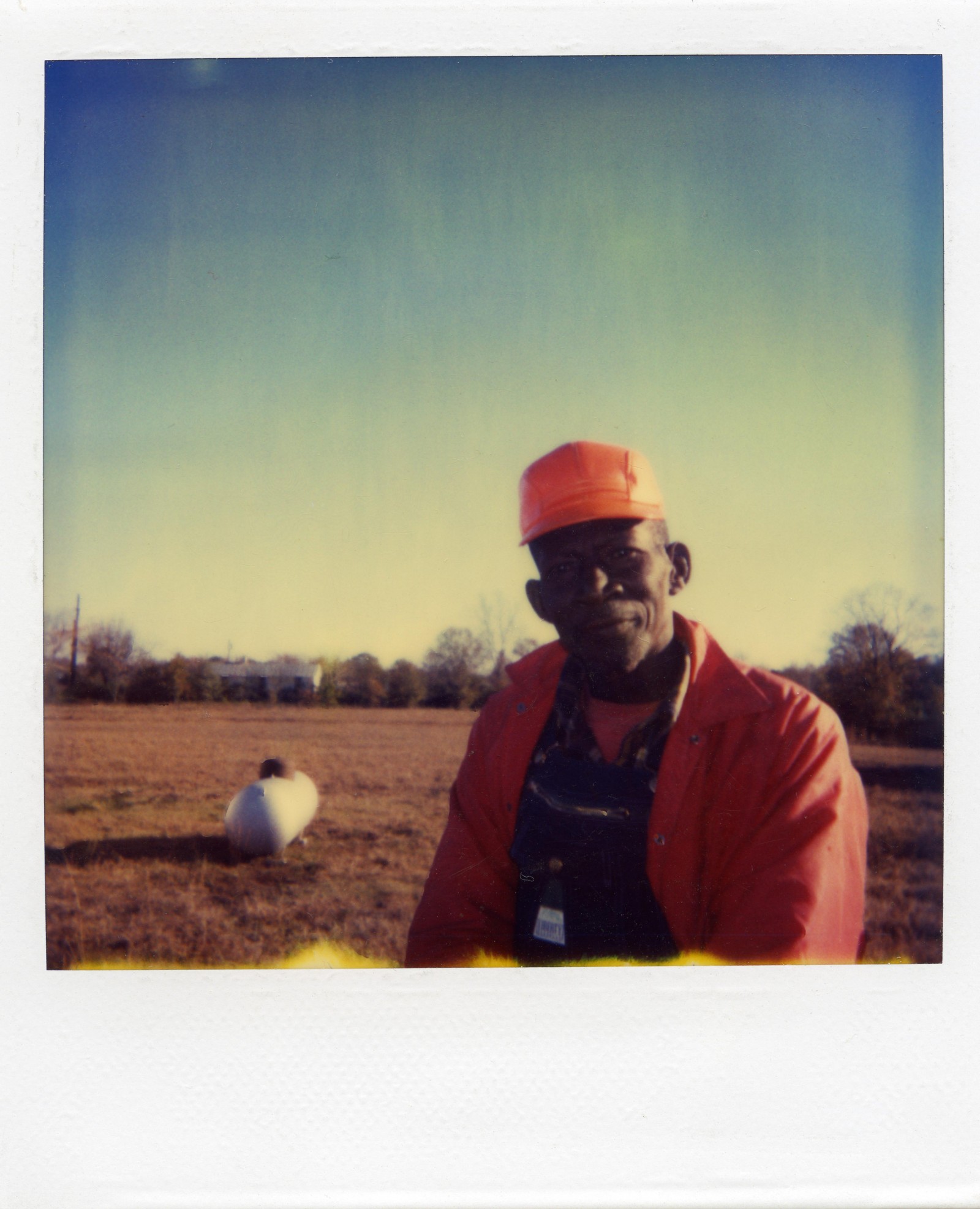THREE STORIES
ONE
I initially hesitated in asking the guy who took this picture of me to do so because he appeared troubled. I told him that ‘It only gives one … there’s no negative.’ He mumbled something. I continued yapping. ‘Instant film without the negative … what a great trick, right?’ Then with a seriousness about him he replied, “Yeah right, I guess I just ran out of tricks.” Out of no where he seemed to recompose himself and continue in a matter of fact way. “Hap, it’s real pleasure to meet you – I’m Robert William Fisher.” I don’t recall, but I must have shook his hand when he continued in his confessional tone. “You know, you’re the first person I’ve shared my real name with in a long time.” I nodded my head without thinking – never asking him why that was.
After waiting in silence for what would develop before us, we simultaneously agreed that it was a fine picture. He said I looked happy, and for just that moment in time I helped him forget about his worries. I thanked him and could see that he was being frank with me. I then told him that he was probably the most perceptive person I’d ever met; and that yes, indeed I am, genuinely happy. He grinned a bit more.
Even though it appeared he was coming out of his shell I continued to tell him more made up shit. I said that I had ‘spent most of my early life very much in pursuit of happiness.’ I assumed that this would imply that I had been an irresponsible goof-off. I continued. ‘but the pursuit of it never really matched up with what I got in return’. The old grease in the frying pan conclusion I thrust on him was that it was much better to just ‘slow down and live life.’ He looked at me with suspicion. I then said, ‘We’re all in it…man’. I never did ask him why he called me “Hap”. I only assumed it meant Happy. Strange guy.
Story by Arthur Kille
TWO
I loved this man. Whenever I hear the song “Rueben James” by Kenny Rogers, I fondly think of him. Mr. Joshua Rhodes was a man of few words. He was also a man of few teeth. That never seemed to bother him though. His snaggled tooth smile would radiant a mile away. He had a 5-acre plot behind my uncle’s farm near Blanco Texas, which he worked on tirelessly. The ground was hard and rocky, but somehow he was able to grow vegetables which he sold at the farmer’s market. He would call out to me whenever he saw me playing soldier by myself. “Hey Greenbean, hiya doin’?” He called me Greenbean. Maybe because I was tall, lanky and my last name was Green. I didn’t particularly like it, but I wasn’t going to tell him that. ” I’am OK, just playin’ soldier Mr. Rhodes.” I didn’t have a lot of friends and I think Mr. Rhodes sensed that. I didn’t have a father either, but that’s another story. Other than my Uncle Dale, Mr. Rhodes was my only true male role model growing up. Although Mr. Rhodes could grow anything, I didn’t know of any other talents he possessed. Except one. He was a master of card tricks. After a hot sweaty day plowing fields, he would wipe his brow, sit down, take a deck of cards out and teach me a new trick. He said, “Greenbean, if you want to impress the ladies, you gotta have a few tricks to show em.” I learned and practiced and became quite good. In the summer of 1975 my mother decided to move back to San Antonio. I never saw Mr. Rhodes again. But ever so often, he still walks the cotton fields of my mind.
Story by Terry Green
THREE
Sure, Charlie had a good life: he had graduated from the Kelley School of Business, married his high school sweetheart, with whom he had a daughter, and worked at a small but lucrative firm in San Francisco. But his wife Lindsay had been dead for over ten years, and the strained relationship he had with his daughter, Daisy, had dissipated from Christmas cards to scattered phone calls to absolutely nothing at all.
He still worked, but his office was undergoing changes: hiring young men with thin ties and ambition and an attitude that wouldn’t take “no” for an answer. Charlie wasn’t stupid enough to think he would stay on his team. Sure, he’d been around the company since its inception, but the new CEO – Daniel Chapman – was barely thirty-five and he had been laying off the older employees one by one. “It’s just that younger folks integrate better with the new software,” Daniel shrugged, as he gave a co-worker her two week notice: “I just need someone with spark in their eyes, not just a twinkle.”
A couple of weeks later, on a quiet April morning, Charlie woke up at 6 a.m, as he always did, and went straight for the docks. For the first time in forty years, Charlie skipped work to sit at the white garden chairs at a cafe called Le Printemps. He ordered a single cup of coffee, and looked at the rows and rows of yachts, gently bobbing in the water.
He took out two letters from his pocket: one with “Letter of Resignation” typed on the back, and the other, addressed to his daughter Daisy. A change was needed, Charlie thought. He’d visit Daisy in Philadelphia, if she let him.
Story by Kieran McClain Baker


